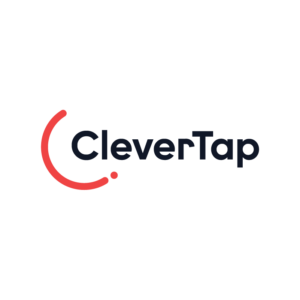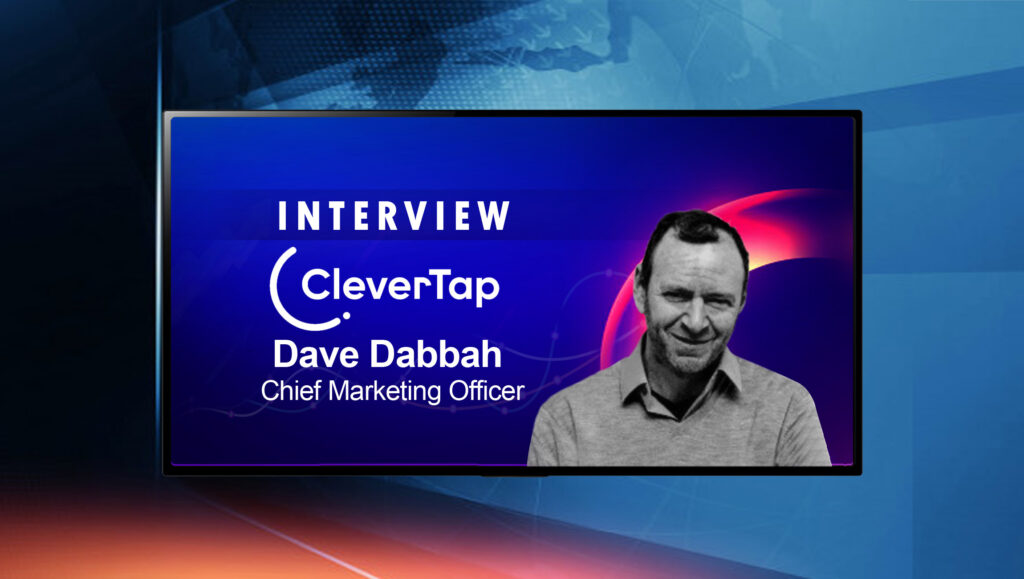Dave Dabbah, Chief Marketing Officer at CleverTap talks about the importance of aligning sales and marketing teams with agile practices while sharing a few top tips that can boost overall sales-marketing collaboration: __________ Today I am CleverTap’s Chief Marketing Officer, but I’ve been in the industry for more than 20 years, building global marketing programs and real-time communication operations. I have a results-driven mindset and am a firm believer in the power of carefully crafted storytelling: delivering the right message to the right people at the right time. In my role at CleverTap, I am responsible for leading the company’s strategic marketing vision around the world. This entails everything from revenue generation to support our sales teams through successful marketing initiatives, to future-looking planning sessions with our CEO and stakeholders, market research, brand development, pricing and technology analysis, product marketing, advertising, and public relations. Read More: Oro Inc. Launches OroMarketplace to Drive Multichannel B2B Sales Growth for Businesses It’s crucial that marketing and sales teams are aligned in their communication, goals, and strategy, because a botched handoff is never the desired outcome. A great starting point for peak collaboration is creating one centralized place to share data and content, whether that means a fully built-out team wiki or knowledge base, or a simple shared folder on a networked drive. The sales and marketing teams need to have access to all the same information in order to nurture leads, achieve a seamless hand off, and drive results. Similarly, a shared project management tool is a great way to foster collaboration between sales and marketing. Maybe it’s the same platform that the teams use for file sharing, or maybe it’s a standalone task manager. Either way, there needs to be shared transparency about workflows and ongoing campaigns so the two teams are consistently tapped into the team projects. Finally, sales and marketing teams should consider adopting the Agile framework, which is a fantastic way to manage collaboration between departments. With Agile, smaller teams have quick, weekly status meetings where they vocalize roadblocks and hold each other accountable for deliverables. Agile does a terrific job at maintaining momentum in collaborative projects, and I think it’s a great fit for sales and marketing teams. Integrated platforms empower sales and marketing teams to communicate and collaborate better, which will only benefit customers in the long-run. All of the previously mentioned technologies (like file sharing, project management, Agile framework, etc.) are terrific for driving collaboration, but I would also recommend more informal methods of brainstorming as well. Not everyone performs well under pressure, so perhaps team meetings aren’t the optimal setting for everyone to spitball new ideas. Salespeople and marketers might consider building out a process or framework that allows anyone to suggest new ideas or topics for content creation — a digital suggestion box, if you will. The more relaxed setting might relieve some pressure and promote more creativity and innovation. Internally, we are of course deeply dedicated to collaboration between our marketing and sales teams. We’ve had great success in using Slack as a communication tool; it cuts out a lot of the noise that often comes with email, and lends itself well to collaboration. With offices in Mountain View, Mumbai, Dubai, Amsterdam, Hong Kong, Singapore, Slack enables our teams to communicate, collaborate and stay on deadline every day. On the project management and content side, we use a tool called Wrike. Teams can collaborate on projects together, edit, review, and view dynamic calendars, and timelines to keep everyone on track, and assign tasks to hold everyone accountable. Finally, we use the Google Suite for all of our content creation. It’s cloud-based so it’s seamless to collaborate across teams. Read More: SalesTechStar Interview with Nikhita Hyett, MD, Europe at BlueSnap Business intelligence platforms are powerful tools that enable better, more cohesive ICP targeting for marketing teams. They also make it possible to utilize real-time data to improve sales and marketing experiences — and as we know, data is the name of the game. Marketers can use real-time and segmentation data to predict lead generation funnels at scale and drive growth. The more information you can collect on what’s working and what’s not working, the better you can determine what your next steps are going to be as an organization. In the future, I think the brands that will benefit most from advances in BI technology will be those that are able to combine real-time, actionable data with historic data points to drive informed decisions. Businesses that use BI platforms will find that their inbound marketing for both consumer and B2B brands will become even more predictable. Outbound marketing will also be improved with the enhanced access to data that BI brings, but not quite to the same extent as inbound marketing channels. The first thing that comes to mind is the ability to scale. When a company is getting off the ground, business capabilities are often limited by budget constraints. But as your operations and campaigns start to grow, you want to ensure that your back-end can grow as well. With today’s tech, scaling is actually something that you can automate — this not only frees up your team to focus their efforts elsewhere, but the automation fine-tunes the scaling so it moves at precisely the pace you need. Another crucial piece of tech for salespeople and marketers is AI and its application in customer personalization. Today, marketers collect and analyze behavioral data about their customers, and it would be impossible to keep track of that data with the human brain. We all know that consumers are expecting relevant, personalized marketing from brands today — and AI can deliver just that. By leveraging AI, marketers can ensure that their audience is segmented accurately and sufficiently, with each segment receiving communications that resonate accordingly. A few things come to mind here — first, brands need to communicate authentically when they engage with customers. If your messaging and copy don’t reflect your brand’s overall tone and values, your outreach won’t resonate very well, and it becomes more difficult to nurture relationships. Second, marketing leaders can’t create better buying journeys without being relevant. If users receive notifications that don’t apply to them or don’t make sense, they might not go back to your site. But if brands tap into their customer data and ensure their messaging makes sense for each audience segment, they’ll have a much easier time building brand loyalty. Finally, retention is king. It’s much harder to gain new customers than it is to maintain relationships with current customers. Keep reaching out to repeat customers, don’t let those ecommerce carts go abandoned, make sure you’re constantly cultivating relationships. If marketers communicate with authenticity, relevance, and persistence, they’ll stand out from the crowd. CleverTap delivers over 10 billion interactions every day across their AI-powered customer engagement and retention platform that enables digital enterprises to dramatically improve mobile user retention and conversion rates through behavioral insights, predictive segmentation, user experience optimization, and fully automated campaign management. Dave Dabbah is the Chief Marketing Officer at CleverTap.Hi Dave, we’d love to hear about your journey through the years…tell us more about your role at CleverTap?
How do you feel marketing and sales teams can collaborate better, using integrated platforms (martech-salestech) to drive business outcomes?
In what ways can marketers and sales people collaborate more especially on content creation and product demo efforts (and even podcasts / blogs) to create value for prospects by delivering content catered to their needs?
Can you talk about a few top marketing technologies and sales technologies that help drive efforts at CleverTap?
We’d love to hear your thoughts on business intelligence platforms and their impact on sales and marketing and how you predict this will grow in future?
What are some core marketing technologies and sales technologies that you feel should form the crux of a sales tech stack-martech stack?
A few thoughts on what you feel today’s sales and marketing leaders need to do differently to help them stand out from the crowd.

What does it take to Drive Customer Success in B2B? Catch the latest marketing, sales and customer facing best practices from these podcasts with industry leaders!





















